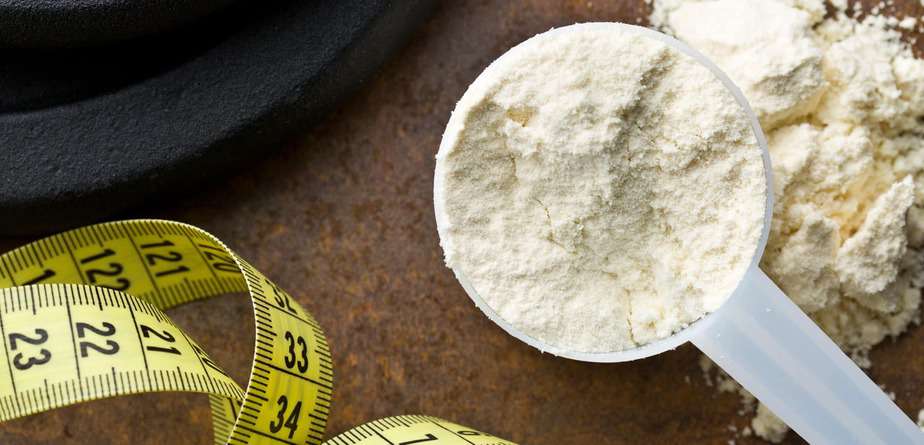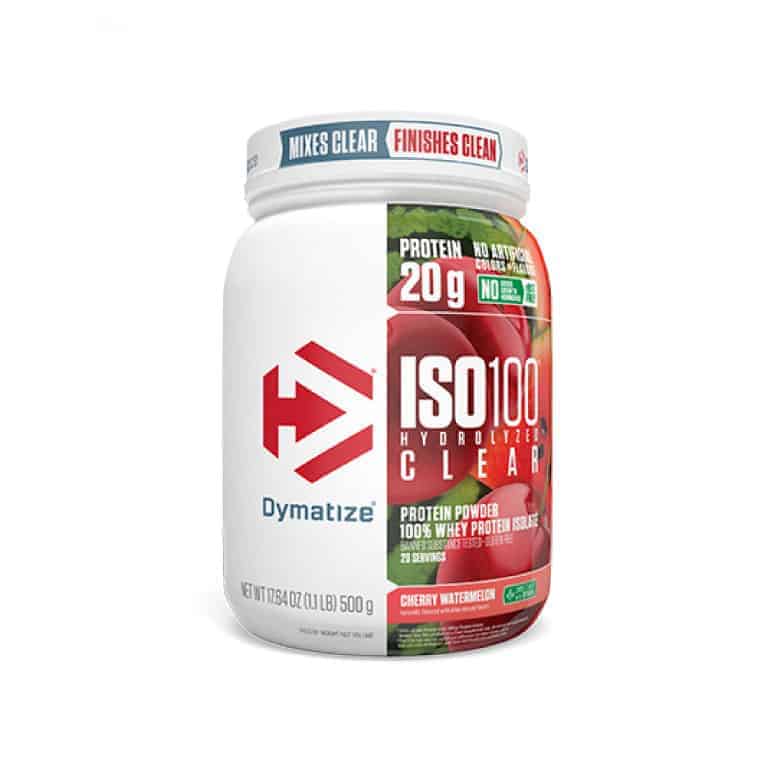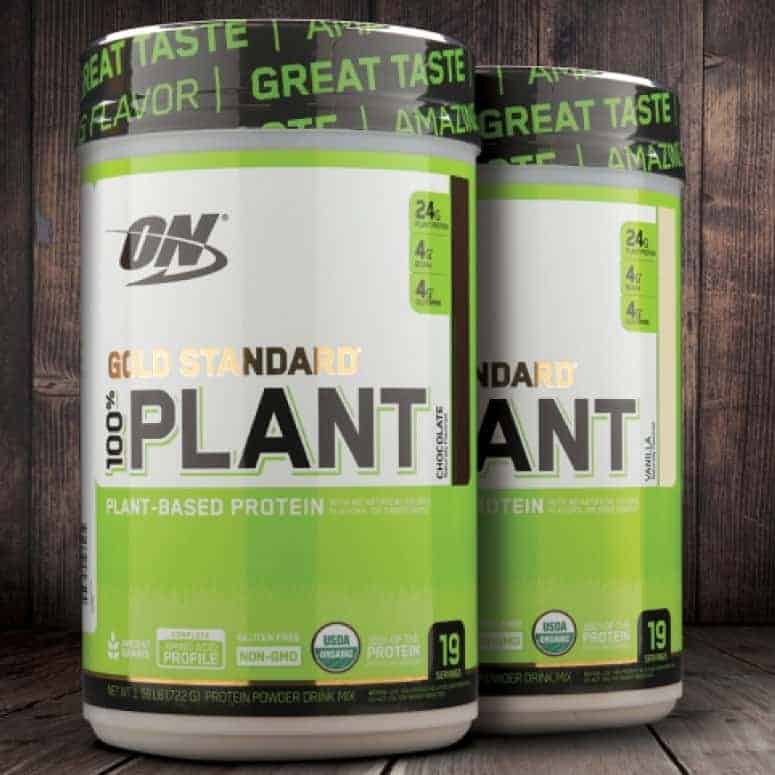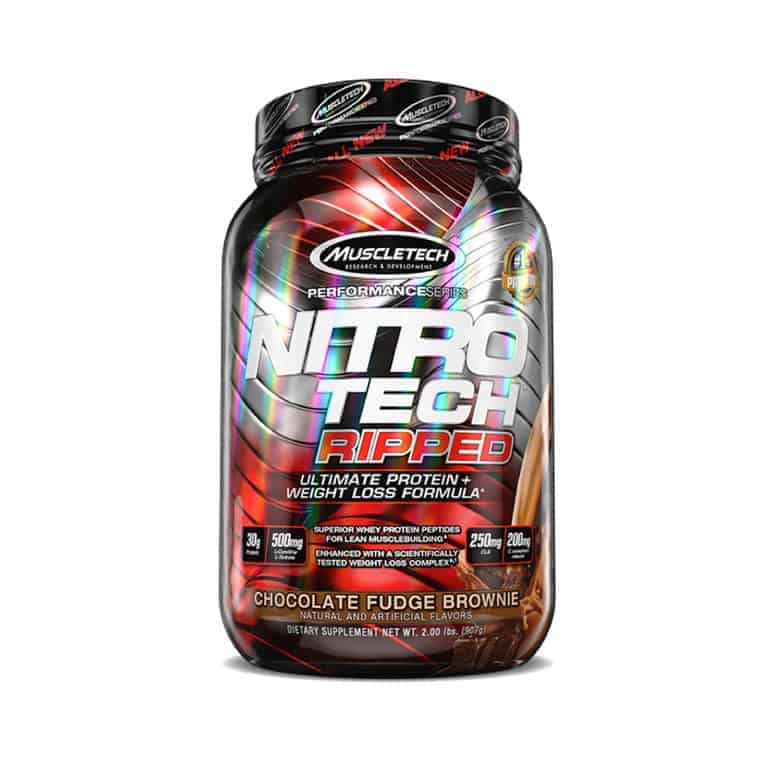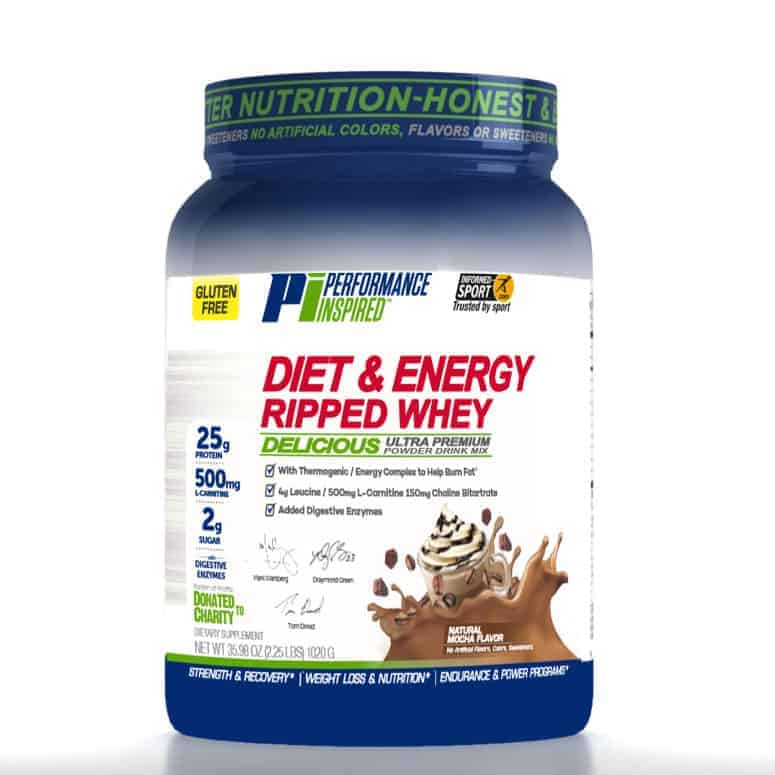Chances are you already know that protein is the most important macronutrient for packing on muscle. What you may not know is that it is also a major contributor to weight loss.
In fact, protein is arguably just as essential for weight loss as it is for building muscle (I’ll dive more into the science behind this later).
However, this doesn’t mean that all protein powders are necessarily ideal for weight loss (many are not). Thankfully, there are a select few niche protein powders for weight loss that can help you achieve a leaner, more defined physique.
Key Point: In this article, we explore the best protein powders for weight loss, why they work, and how to use them.
The Protein Powders for Weight Loss We RAVE About
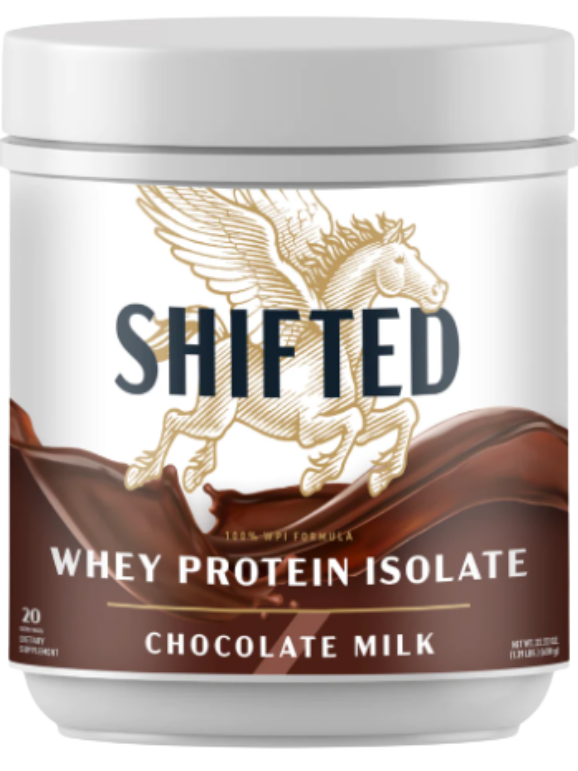
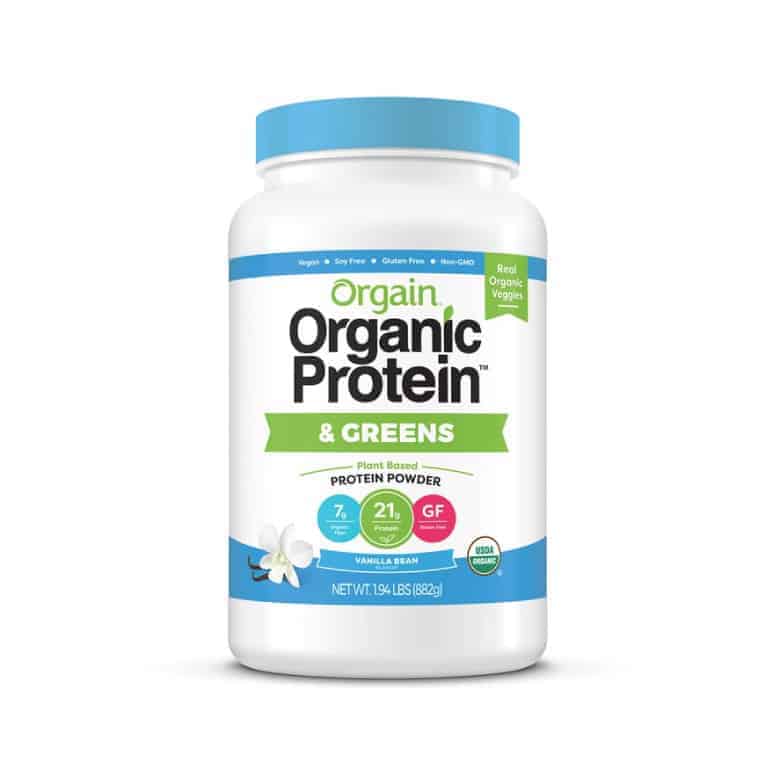
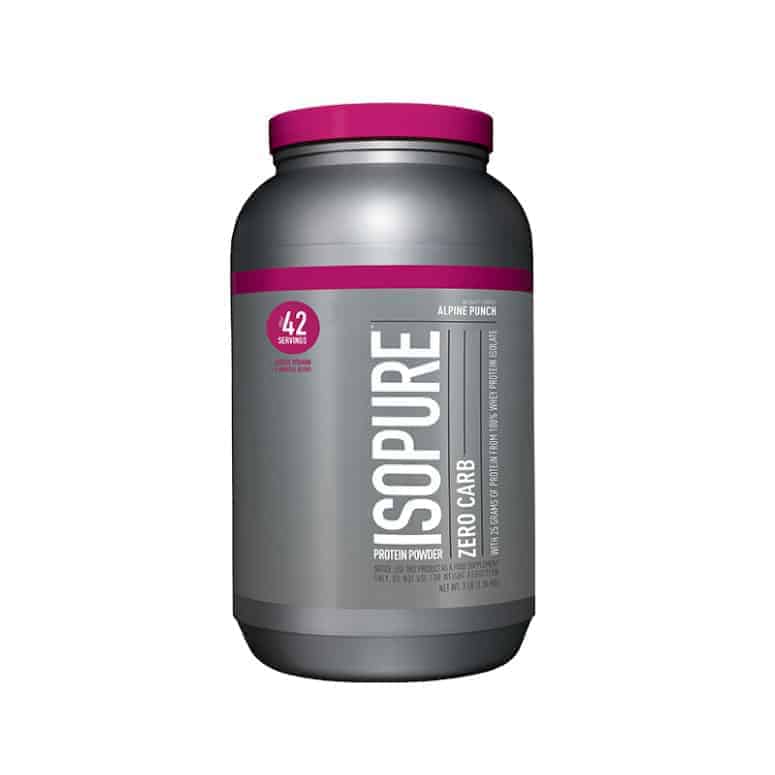
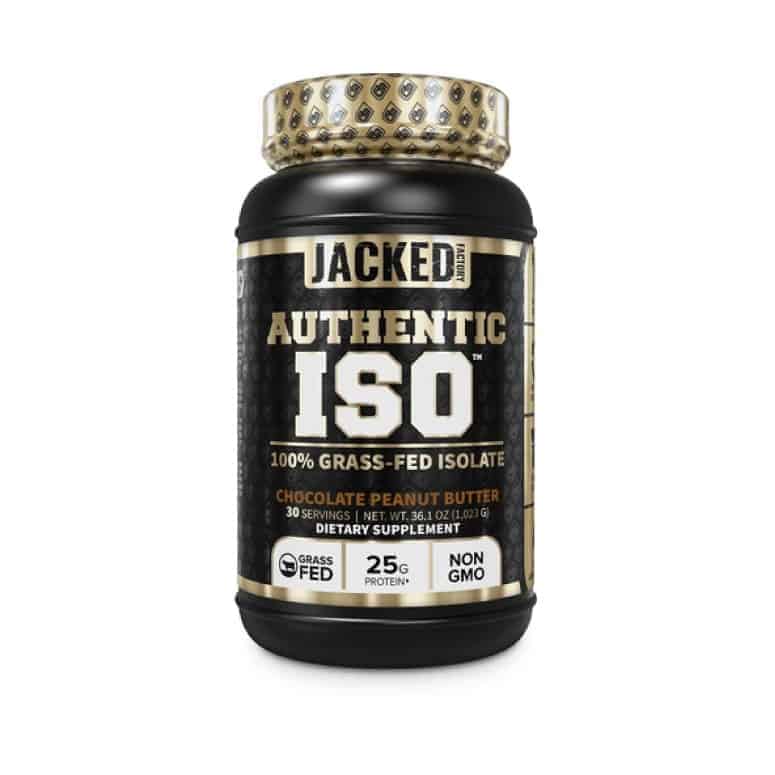
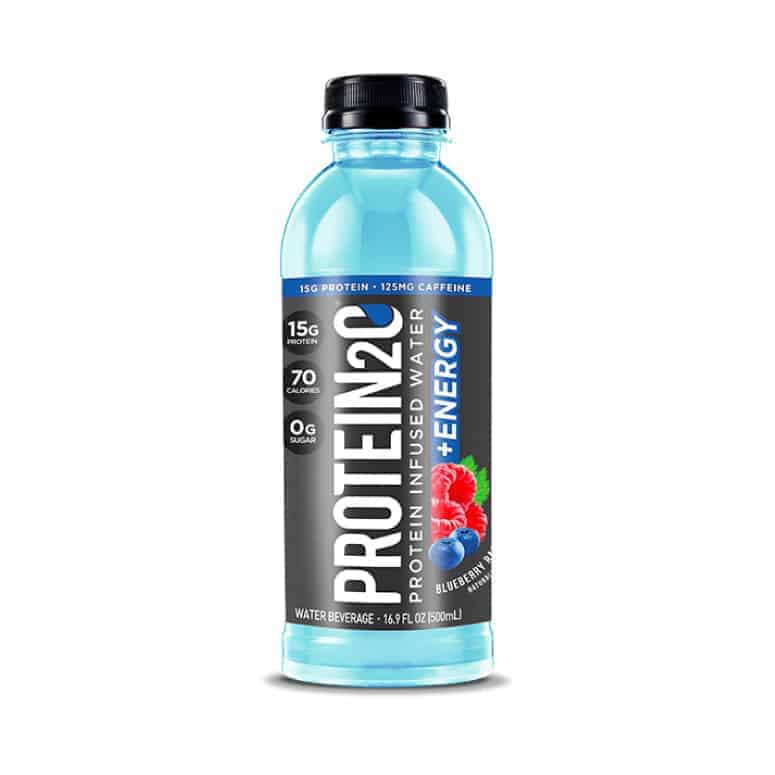
Why Use Protein Powder for Weight Loss?
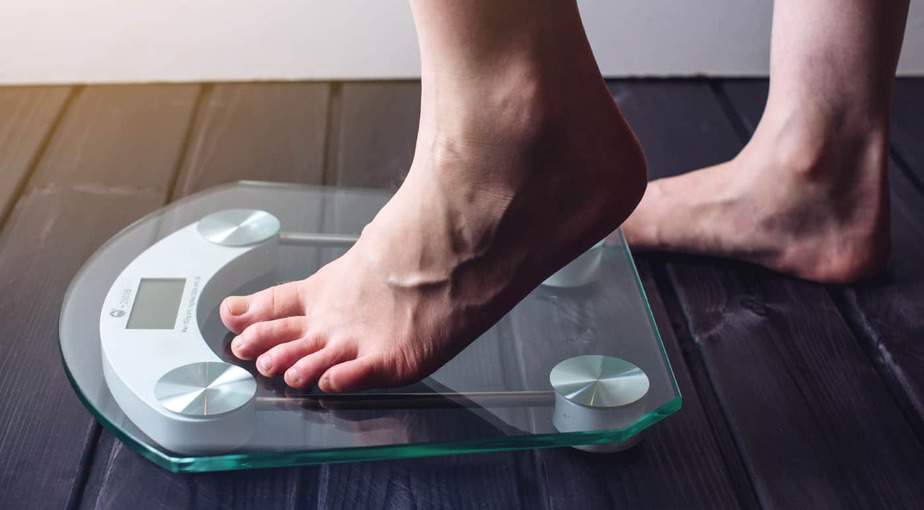
Many people have a tough time meeting their daily protein needs through whole food sources.
Frankly, I can’t blame anyone for skimping on protein given the cost of protein-rich foods, like meat, seafood, poultry, and dairy.
Especially these days, sourcing all of your protein through whole foods can become quite expensive.
But we live in the 21st century, so you can hold your head high knowing that there is an affordable protein powder for weight loss to help you achieve your fitness goals.
Protein Powder is Only Part of Weight Loss
Now, as a “disclaimer” of sorts, I am not saying you should rely on protein powder for weight loss or as the sole source of protein in your diet. Rather, protein powder should serve as a supplement to a well-rounded diet that includes plenty of protein from whole foods.
And it goes without saying, you should hit the gym regularly and keep active if your goal is to lose weight. There is no replacement for exercise and a proper diet.
Nevertheless, high-quality protein powder for weight loss can serve as a great helping hand when you need it most. As a graduate student in the medical sciences and someone who has been writing about dietary supplements and nutrition for the last decade, I’ve gained quite a bit of insight into the realm of protein powders. In this guide, I will detail the best protein powders for weight loss and where you can find them for a bargain.
What is Protein Powder? Where Does it Come From?
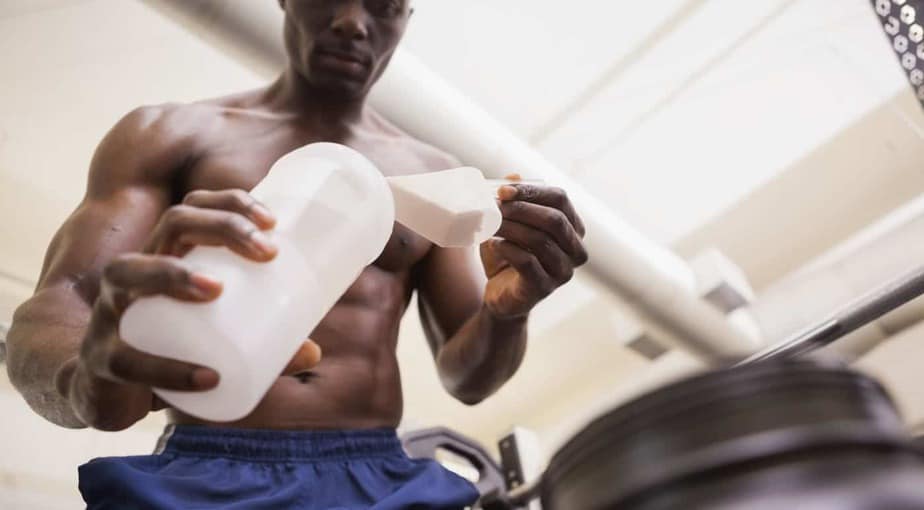
You’ve probably heard of whey protein at some point. Or maybe you’ve been using a whey protein powder for years now and still wonder, “What the heck is whey protein, anyway?”
Cow’s milk is rich in dairy protein, which just so happens to be Mother Nature’s predominant source of whey protein and casein protein. So, in short, whey and casein protein powder come from dairy milk; more specifically, they are byproducts of the cheese-making process.
Whey protein and casein protein are exceptional sources of essential and non-essential amino acids. It might help to think of them as the “building blocks” of muscle tissue.
Takeaway: Protein powder can also be made from non-dairy foods, like egg whites, beef, and plants, particularly peas and brown rice. So yes, vegans can rejoice knowing that there are plant-based protein powders for weight loss.
How Does Protein Powder for Weight Loss Work?
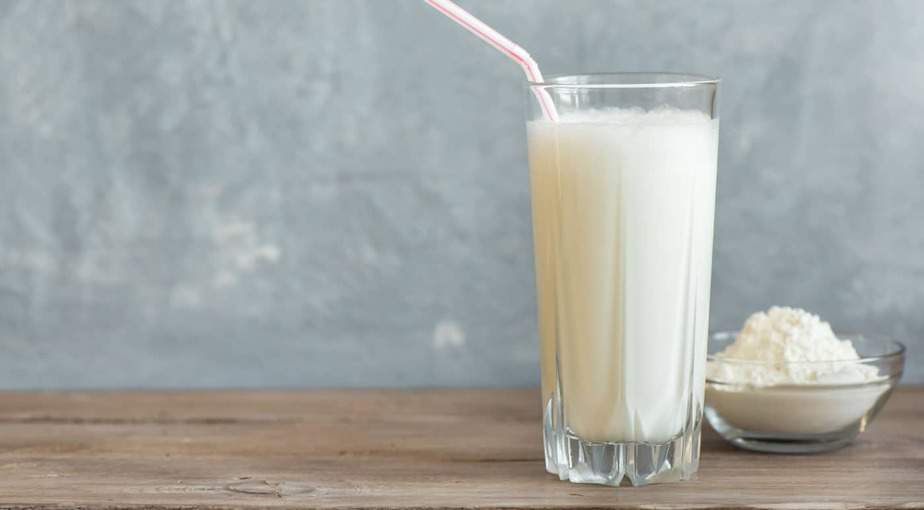
Protein powder is one of the most competitive (and diluted) niches in the dietary supplement industry.
The differentiation between one protein powder for weight loss to the next often seems inconsequential, if not impossible to discern. Though, I can assure you that if you take the time to read supplement labels and learn more about what goes into the products, it becomes apparent what sets them apart.
While some protein powders contain ingredients that may support weight loss, like green tea extract, caffeine, and glucomannan, it’s imperative to acknowledge that these supplements are not magical fat-burning elixirs.
However, don’t let that discourage you from investing in a protein powder for weight loss.
Takeaway: High-quality protein powder can absolutely facilitate weight loss by helping you meet your protein needs without adding a ton of calories (as carbs, sugars, and fat) to your diet.
How Much Protein Should You Eat?
Naturally, you might be curious about how much protein you should eat for weight loss? Well, it depends…
First, let’s consider that protein has the greatest per-gram net thermic effect of food (TEF) of any macronutrient. In layman’s terms, this simply means your body expends more energy (calories) to fully absorb and digest protein compared to fats and carbohydrates.
In fact, the phenomenon of “meat sweats” after eating a massive steak is quite literally the result of your body generating more heat due to all the protein digestion.
Thus, eating a higher protein diet will tip the calories-in-calories-out equation slightly in favor of a negative energy balance, thereby encouraging weight loss. (Note: Energy balance is unequivocally the most important factor in weight management.)
In addition, protein is a highly satiating macronutrient, which again makes it easier to stick to a weight-loss diet. And as you are probably well aware, protein is essential for maintaining and building lean body mass like skeletal muscle tissue.
Takeaway: This does not mean that you should eat a ton of protein when your goal is to shed some weight. There is certainly a point of excess with protein intake, just like anything in health and nutrition. On the flip side, it’s important not to skimp on your protein intake either.
Protein Intake for Weight Loss: Is the RDI Enough?
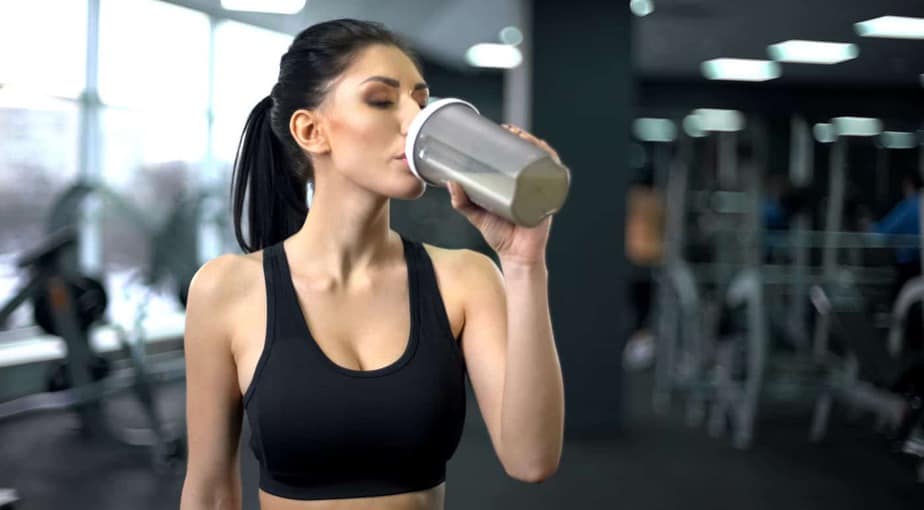
Dietary reference intakes (DRIs) are dietary guideline recommendations disseminated by the U.S. government. They are suggested to meet the nutritional needs of 97-98% of healthy individuals across the country.
For adults, the current DRI for protein is a modest 0.8 grams of protein per kilogram of body weight, which comes out to about 0.36 grams per pound. (If you’re a gym-goer or athlete, you might have just let out a ghastly shriek as you read that… )
The DRI for protein has actually been an issue of reconsideration as of late, given the growing body of evidence that suggests higher amounts (in the realm of 1.8-2.0 grams of protein per kilogram of body weight) are beneficial for active people.
In fact, a recent research review concluded that high-protein diets (>1.2 grams protein per kilogram of body weight) are generally favorable for maintaining a negative energy balance, whereas low-protein diets may lead to the opposite.
Remember, weight loss ultimately boils down to burning more calories than you consume and being consistent. If anything, eating more protein will make your weight loss journey more tolerable and efficient.
As it stands, most people should be eating more protein for weight loss—upwards of 1 gram per pound of body weight per day.
For a more in-depth breakdown of how to calculate optimal protein intake based on your goals and activities, check out this video from clinical nutritionist, Autumn Bates:
So, what’s the best protein powder for weight loss? Let’s look at how we answered this question.
Methodology
If I’m being completely forthright, I can tell you that supplements marketed as “thermogenic protein powder” or “fat-burning protein powder” largely prey on the credulity of consumers for otherwise low-quality products. After all, the majority of the decision-making process when you purchase supplements (or any consumer goods) is based on the aesthetic of the label, not what’s actually in the product.
The reality is that protein powder doesn’t need to contain any “special” fat-burning ingredients just to help you lose weight. Sure, there are some ingredients that might provide a little extra kick to keep you energized throughout the day, but they aren’t the main thing to look for in a quality protein powder for weight loss.
So, what is the main thing to look for?
When it comes to protein powders, the quality of ingredients varies significantly from one supplement to the next. It’s one thing for a protein powder to claim it has “20 grams of protein per serving,” but where does that protein come from?
We asked these questions:
- Has it been tested for purity and contamination?
- Does it contain added sugars?
- Is it loaded with artificial colors and preservatives?
Fortunately, there are a handful of (familiar) supplement brands that have recently launched high-quality protein powders that complement weight loss with exceptional ingredient profiles.

To rank these top protein powders for weight loss, I used the following criteria:
- Protein content per gram
- Ingredient quality (non-GMO, gluten-free, vegan, etc.)
- Additional weight-loss support ingredients
- Taste and flavor options
- Value (cost per serving)
The Best Protein Powder for Weight Loss
SHIFTED Whey Protein Isolate
SHIFTED Whey Protein Isolate (WPI) comes from SHIFTED, a new name in the world of health and fitness supplements.
Why their products caught our eye is simple. SHIFTED has invested big time in high-end formulation science. Their Chief Scientific Officer, Dr. Adam Gonzalez has a PhD in Exercise Physiology and works at the forefront of fitness supplement research and leveraged this expertise to develop products that stand apart from the rest.
In other words, SHIFTED offers top tier products that are formulated based on science, not the bottom-line.
This is particularly true for SHIFTED WPI which comes jam-packed with amino acids and high quality 100% whey protein isolate, which is the best form of protein powder in my oppinion. It’s clean, it’s more easily digestible, and the most common downside–its price–is not present here.
Customers pay less than 7 cents per gram of whey protein isolate powder, which is very competitive. Large brands in the space often charge 8 to 9 cents or more per gram of whey protein isolate.
But the competitive pricing isn’t what one us over in the end — it was the combination of incredible flavors and low calorie count. Because in our minds, if a protein powder is low calorie AND great tasting, it’s just hard to beat. We loved both flavors that SHIFTED currently offers:
- Cookies and Cream (100 calories per serving)
- Chocolate Milk (110 calories per serving)
It’s common to see WPI products ranging from 120-150 calories per serving, so the fact SHIFTED WPI comes in at the low-end of calories while still nailing these rich and delectible flavors makes it our #1 pick by a significant margin.
Because afterall, it’s much easier to commit to protein powders as meal replacement if you look foward to tasting them on a daily basis. So whether you’re looking for an all-out meal replacement or a nutritious solution to protein supplementation, SHIFTED WPI will not disappoint.
Pros
- Exceptional doseage of whey protein isolate per serving
- Killer amino acid profile
- Great price per grame of WPI
- Best tasting protein powders we have ever tested
Cons
- 20 servings per container
Isopure Zero Carb Whey Protein Isolate
Isopure is the quintessential godfather of whey protein isolate powder. I fondly remember the good old days of buying the ready-to-drink Isopure Zero Carb at the local supplement shop and thinking to myself “How can something this tasty be purely protein?” Well, that was 15 years ago and the brand is still doing what they do best: selling delicious zero-carb whey protein isolate.
Arguably the toughest part about buying this protein is picking a flavor. Though I will say Isopure excels in the fruitier options, particularly Alpine Punch, Apple Melon (my personal favorite after a workout), and Pineapple Orange Banana.
No matter which flavor you choose, Isopure Zero Carb comes with added vitamins, minerals, and L-glutamine to keep you performing at top speed. And since this protein is carb-free, you don’t have to worry about lactose, fillers, or gluten giving you stomach issues.
Pros
- 25 grams protein per serving
- Zero carbs and gluten-free
- Micronutrients and L-glutamine
Cons
- Expensive
- Some inferior vitamin forms
- Artificial sweetener and color
Evolution Advance Nutrition Fit & Slim Weight Loss Protein
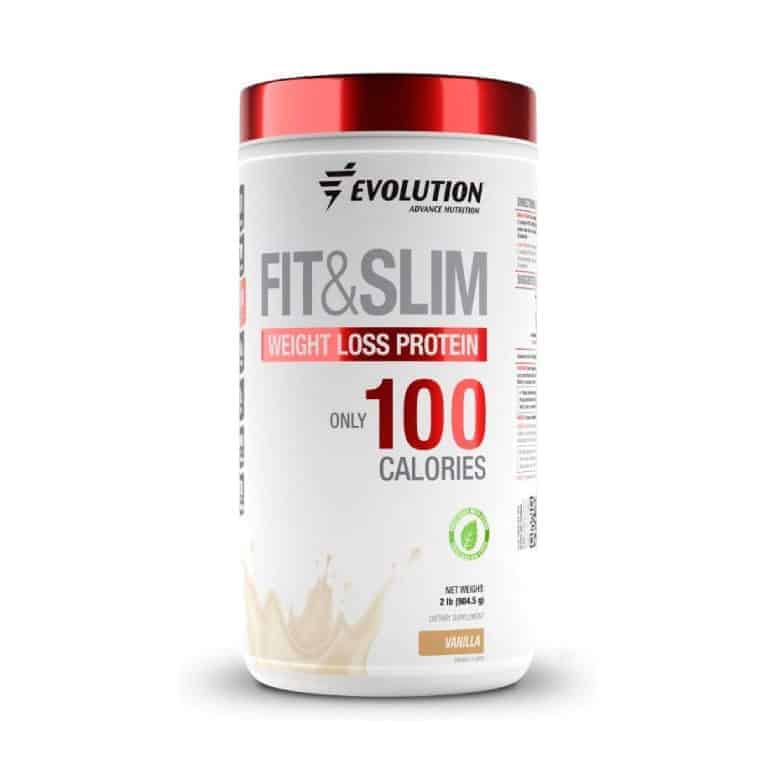
One of the top-selling protein powders for weight loss on Amazon, EAN Fit & Slim Weight Loss Protein is light on calories (100 per 30-gram scoop) and oh-so-satisfying. Thanks to a blend of digestion-slowing inulin and glucomannan fibers, this protein will keep you satiated for hours without leaving you feeling bloated or gassy.
It only contains 18 grams of protein per serving, which isn’t a whole lot, but it’s quality grass-fed whey protein and naturally sweetened with stevia.
It’s also soy-free, gluten-free, and non-GMO. While I think this formula is great all around, the price is a bit steep given the protein content. Regardless, if you have a little extra money to spend, chances are you’ll be more than content with this weight loss protein.
Pros
- Non-GMO and grass-fed
- Prebiotic fiber to curb hunger
- Naturally sweetened
Cons
- Expensive
- 18 grams of protein per serving
- May be too sweet for some
Dymatize Iso100 Hydrolyzed Clear
Looking for an all-natural, ultra-pure whey protein powder that tastes like fruit juice? Look no further. Iso100 Hydrolyzed Clear may be light on calories, but it packs 20 grams of protein from both hydrolyzed whey protein isolate and whey protein isolate in every 25-gram scoop.
Even better, this is one of the few whey protein isolates on the market that isn’t made with artificial flavors, sweeteners, or colors.
In fact, it mixes completely clear so you’d never even think it’s protein powder. Plus, Iso100 Hydrolyzed Clear comes in three fruit flavors, including Cherry Watermelon, Pineapple Orange, and Mango, each of which is sure to satisfy a sweet tooth and keep you on track towards your weight-loss goal.
Pros
- 20 grams of protein
- Gluten-free, naturally flavored
- Only 90 calories per serving
Cons
- Expensive
- May taste overly sweet to some
- Not as filling as other proteins
Orgain Protein & Greens Plant-Based Protein Powder
Whether you’re a die-hard vegan or just someone who wants to make more plant-based diet choices, I ranked Orgain Protein & Greens as the best vegan protein powder for weight loss.
It’s admittedly tough to find any glaring faults with this protein powder: It’s made with completely organic, non-GMO, and certified vegan ingredients and actually tastes good (unlike many plant-based protein powders).
But there has to be a catch, right? Well, in this case, note that it’s more of a meal replacement powder or a green smoothie of sorts than a pure protein powder. Each 49-gram serving only provides 21 grams of protein.
The remainder comes in the form of fats (4.5 grams) and carbs (19 grams). Nevertheless, these nutrients are derived entirely from organic greens (e.g. spinach and kale) and a blend of fibers that reduces the net carb count significantly. Since each serving is a modest 160 calories while being highly filling, it makes for quite a treat on a weight-loss diet.
Pros
- Non-GMO, USDA organic
- Affordable
- Great taste
Cons
- Only two flavors
- Higher in carbs and fat
Jacked Factory Authentic Iso
Jacked Factory comes from humble beginnings as a small supplement brand that initially offered one product, a clinically dosed pre-workout powder called Altius.
Thankfully, that was all they needed to spur immense growth over the years. Fast forward to today and JF was ranked as one of Canada’s top 30 startup companies in 2019. Their preeminent weight loss supplement, Burn-XT, has been a top seller on Amazon since 2018.
To no surprise, Authentic Iso is another outstanding product from JF. This protein powder is made with 100% grass-fed whey protein isolate and arguably the most delicious chocolate peanut butter flavor you’ll find in a supplement. Another major selling point is that Authentic Iso is quite affordable, especially for a pure grass-fed whey protein isolate supplement.
About the only drawbacks are that it only comes in one flavor option and it’s not as low in carbs as you might prefer. Regardless, Authentic Iso holds its own against the best protein powders for weight loss.
Pros
- 100% grass-fed, non-GMO
- Affordable
- Fantastic flavor
Cons
- Only one flavor option
- 5 grams net carbs per serving
Optimum Nutrition Gold Standard 100% Plant
If you’re not familiar with Optimum Nutrition (or “ON”), well… you’ve been living under a rock. Optimum Nutrition is one of the leading sports supplement brands across the globe and a purveyor of the industry’s most revered protein powders (which rank among RAVE’s best protein powders).
However, their success with the esteemed Gold Standard series of whey protein and casein protein powders might cause consumers to overlook their Gold Standard 100% Plant protein powder, which is not something to be trifled with.
Personally, I love this formula (and I’m not even on a vegan diet). It features 24 grams of protein per 38-gram serving from organic peas, brown rice, and sacha inchi.
These plant-based protein sources complement each other nicely to give you the essential amino acids necessary to support muscle repair and retention while you strive toward a leaner physique.
This vegan protein powder also packs a trademarked blend—AncienTrim—of organic grains that are suggested to promote satiety, making it easier to stick to a weight-loss diet.
Pros
- Brand reputation
- Vegan-friendly
- Gluten-free, non-GMO
Cons
- 5g carbs, 3g fat per serving
- Expensive
- Different texture and taste
MuscleTech Nitro-Tech Ripped
MuscleTech is a ubiquitous sports supplement brand with hundreds of different products, a good chunk of which are protein powders.
While the company makes some pretty bold claims (every supplement company does) about their Nitro-Tech protein line, Nitro-Tech Ripped is a solid weight-loss variant that holds its own against other top contenders.
The foundation of the formula is whey protein isolate, providing 30 grams of protein per scoop (44 grams). Not the best protein per gram content, but what sets Nitro-Tech Ripped apart from other protein powders for weight loss is the Ripped+ Matrix.
This is a blend of L-carnitine, conjugated linoleic acid (CLA), coffee bean extract, rosehip extract, and kelp that is purported to boost weight loss. These ingredients are sound and well-tolerated in clinical research, but the doses are fairly low so it’s unclear whether they will produce any notable benefit.
Regardless, Nitro-Tech Ripped is worthy of consideration when you’re trying to trim down a bit. It tastes pretty darn good, too.
Pros
- 30 grams whey peptides
- Excellent flavor
- Added thermogenic ingredients
Cons
- Only two flavors
- 4 grams fat and 170 calories
- Expensive
Protein2O Low-Calorie Whey Protein Drink
I first stumbled upon Protein2O somewhat serendipitously when I was on a road trip and saw these ready-to-drink whey protein drinks next to the other sports beverages.
I was admittedly skeptical when I read the label but to my amazement, these are pretty darn refreshing and pack a solid 10-15 grams of whey protein isolate per bottle (depending on which flavor you choose).
Since these protein-infused water drinks aren’t packed with sugar, fat, or fillers, they are very light on the stomach, almost like drinking Powerade Zero. Don’t expect Protein2O to fill you up like other protein powders for weight loss. Nevertheless, when you’re in a pinch for time or on the road, it can be a lifesaver.
Pros
- Only 50-60 calories per bottle
- Convenient & ready-to-drink
- Refreshing taste
Cons
- Not very filling
- A bit pricey
- Artificial sweetener and color
Performance Inspired Nutrition Diet & Energy Ripped Whey
This up-and-coming supplement brand is now available at a range of retailers across the U.S. and certified as Informed-Sport, meaning every product batch is tested for banned substances. Their Diet & Energy Ripped Whey is distinct from other protein powders for weight loss in that it’s formulated with caffeine, green tea extract, and L-carnitine.
These three ingredients will keep your engine revving at full capacity throughout the day and encourage weight loss. Though, my scrutinous side is a bit underwhelmed by the doses of green tea and L-carnitine.
In any case, the pros of this protein powder certainly outweigh the cons, and it’s bound to satisfy your taste buds while keeping you full.
Just be sure to avoid drinking Diet & Energy Ripped Whey close to bedtime, as the caffeine content might interfere with sleep. Ideally, use this source of protein at breakfast or in the mid-afternoon to beat the crash at the office.
Pros
- Satisfying energy boost
- 5 grams of fiber per serving
- Added weight-loss ingredients
Cons
- Low dose of L-carnitine
- Low protein content per gram
- Only useful during the day
Related Content and FAQs
If you’d like to learn more about burning fat and/or improving your fitness regimen, consider our other work:
- The 10 Best Paleo Friendly Protein Powders: Value, Post Workout, and More
- The 10 Best Fat Burner Supplements
- 10 Often Neglected Preparations for Before Your Workouts
- Best Foods to Eat Before You Work Out for the Best Performance
- What are the Most Important Ingredients in a Protein Bar?
And if you still have lingering questions about using protein powder for weight loss, then consider the frequently asked questions below.
Just click the question in blue for a drop-down answer.
Do I need to take protein powder to lose weight?
Heavens no! The best protein powder for weight loss is first and foremost one that serves as a convenient source of quality protein without packing a ton of calories.
This can help make weight loss easier by supporting appetite control, a negative energy balance, and lean body mass (e.g. muscle tissue) retention. However, this does not mean you need to take protein powder just to lose weight.
How much should I eat to lose weight?
I highly recommend checking out this guide to counting macros if you’re trying to lose weight and keep it off. It guides you step-by-step through the process of counting calories, carbs, protein, and fats and provides some simple methods to help you determine how much to eat for weight loss.
Is it bad to consume more than the RDI of protein?
The short answer: No, eating more than the RDI for protein isn’t “bad” or “unhealthy,” so long as you aren’t on a medically restricted diet that requires limited protein intake.
Should I take BCAAs if I already take protein powder?
Branched-chain amino acids (BCAAs) are a group of three different amino acids—leucine, isoleucine, and valine—that share chemical structure similarities. They are thought to be the “key players” in muscle protein synthesis.
However, there isn’t much research or evidence available to suggest that taking BCAA supplements provides any advantage for muscle building or weight loss in people who already consume an adequate amount of protein through whole foods and protein supplements.
However, BCAA supplements might prove useful in some cases, particularly between meals that are spaced 5-6 hours apart. BCAAs may also be useful for inhibiting muscle protein breakdown and protecting hard-earned muscle tissue when your main goal is to lose weight.
What is the best plant-based protein powder?
I would argue that it’s a toss-up between pea protein and rice protein, or both combined since their amino acid profiles complement each other to make them more “complete.”
Rice protein lacks the essential amino acid L-lysine, so it’s not considered a complete protein source. Pea protein is complete, albeit low in methionine, one of the nine essential amino acids.
If you’re following a strictly plant-based diet, protein powder that combines rice protein and pea protein is the best way to go. This is a major reason why Orgain Protein and Greens earns the title of best plant-based protein powder for weight loss.
